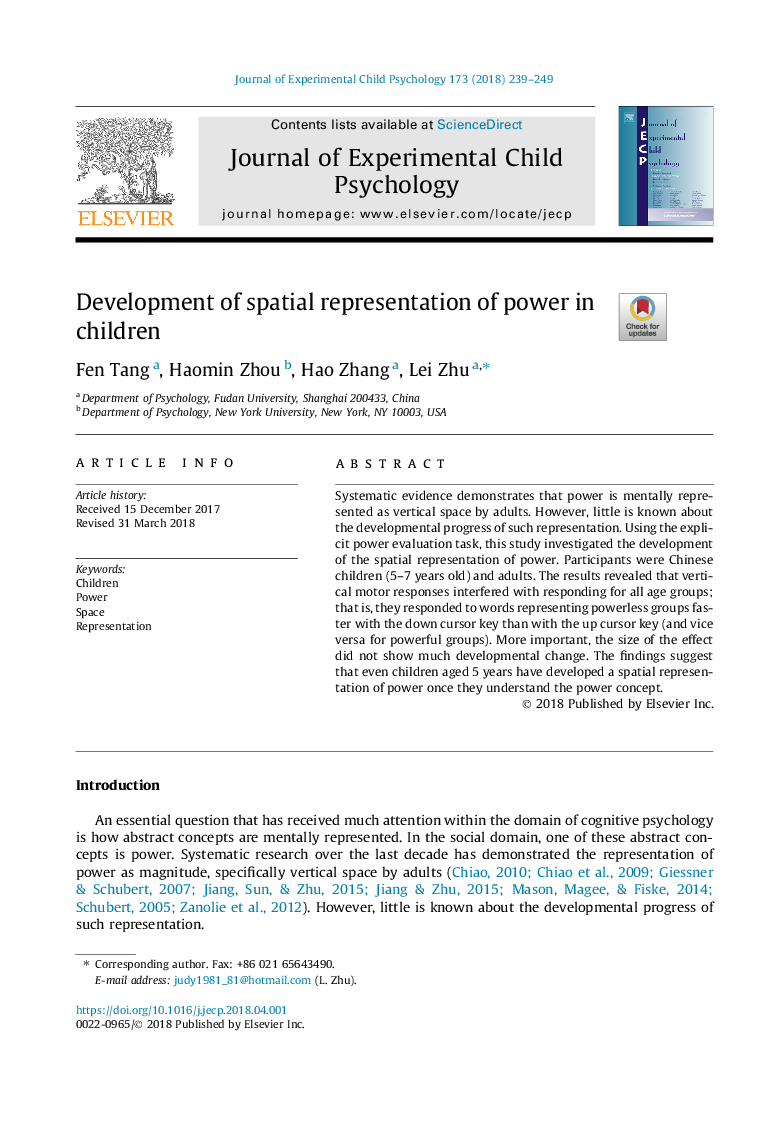| Article ID | Journal | Published Year | Pages | File Type |
|---|---|---|---|---|
| 7273828 | Journal of Experimental Child Psychology | 2018 | 11 Pages |
Abstract
Systematic evidence demonstrates that power is mentally represented as vertical space by adults. However, little is known about the developmental progress of such representation. Using the explicit power evaluation task, this study investigated the development of the spatial representation of power. Participants were Chinese children (5-7â¯years old) and adults. The results revealed that vertical motor responses interfered with responding for all age groups; that is, they responded to words representing powerless groups faster with the down cursor key than with the up cursor key (and vice versa for powerful groups). More important, the size of the effect did not show much developmental change. The findings suggest that even children aged 5â¯years have developed a spatial representation of power once they understand the power concept.
Keywords
Related Topics
Social Sciences and Humanities
Psychology
Developmental and Educational Psychology
Authors
Fen Tang, Haomin Zhou, Hao Zhang, Lei Zhu,
